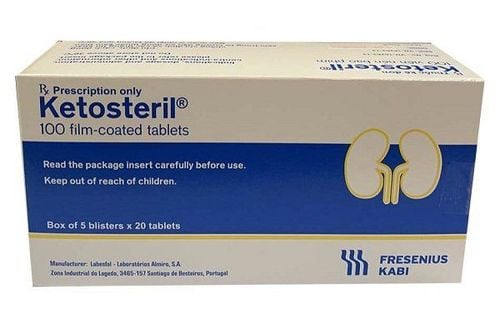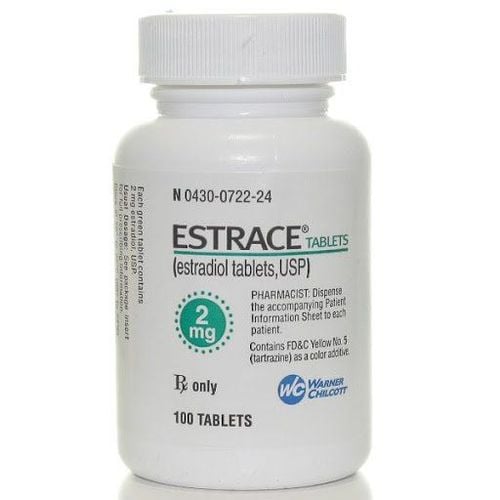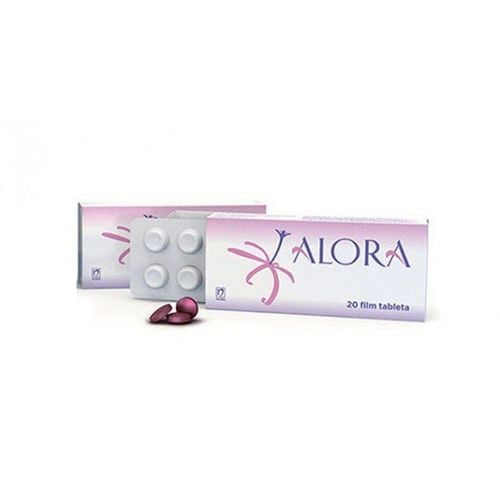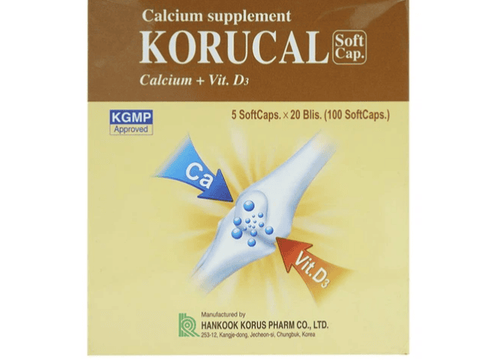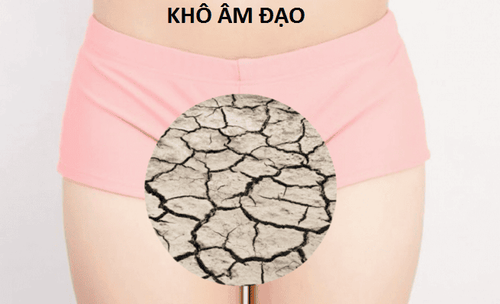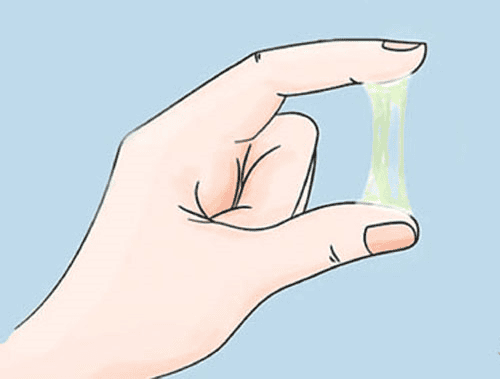This is an automatically translated article.
Women entering the age of 40 are mostly going through perimenopause. At this time, the hormones in the body decrease and cause certain changes. However, sexual needs remain and affect family happiness. Therefore, "dryness" due to perimenopause is a problem that surely every woman who hears about it will be very worried. Equip yourself with the knowledge about menopause as well as deal with dryness during this period to be both confident and keep the marriage fire.
1. 40 years old and perimenopause
Perimenopause is the period of several years before menopause. During this time, women will have hormonal disturbances in the body (especially a decrease in estrogen) and cause symptoms such as menstrual irregularities, trouble sleeping, irritability, hot flashes and hot flashes. drought,... Depending on the location of each person, these symptoms may persist for a few months or even years after the last menstrual period. After that is the stage of menopause, the egg stops ovulating and there is no menstrual cycle.
2. “Dry” of perimenopause
"Dry" also known as vaginal dryness is mainly caused by the fact that in perimenopause, the hypothalamus - pituitary - ovaries axis of the body will reduce the secretion of GnRH hormone, which reduces estrogen levels. That means poor functioning of the endocrine glands of the ovaries, leading to a reduced sex drive.
Besides, the oil glands in the genital tract are poorly secreted, causing the vagina to dry out, the vaginal mucosa is less nourished and atrophy. At that time, the relationship between husband and wife is very difficult, even painful during intercourse, loss of sensation and causes some unpleasant symptoms such as itching, abnormal discharge, burning, abnormal vaginal bleeding.
Some other causes of vaginal dryness such as excessive stress, anxiety, prolonged stress, postpartum depression, some autoimmune diseases; infection ; side effects of some antidepressants and blood pressure medications;
Signs of "dryness" of perimenopause that women often encounter: Hot, itchy, dry vaginal burning, pain during sex; No desire to be close to her husband as before; Loss of enjoyment most times during sex; some cases of minor bleeding after intercourse; Vaginal discharge turns yellow or milky after a few days of intercourse
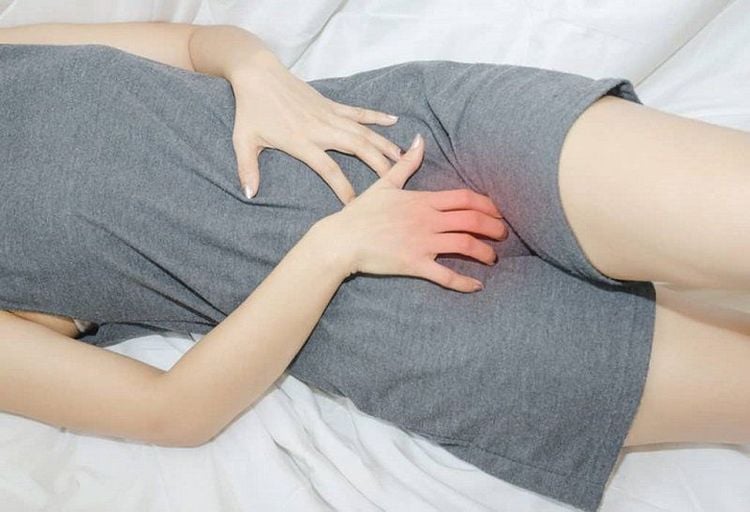
Khô rát âm đạo là dấu hiệu cảnh báo tình trạng khô hạn ở tuổi 40 ở phụ nữ
This long-term situation will make women no longer feel interested in sex, avoid bed and partly affect married life.
2.2 Vaginal Burning Normally, the vagina has a constant pH environment that plays a role in killing invading microorganisms. However, if the vagina secretes less fluid, it will lead to a pH disturbance and cause a burning sensation. This not only affects the marriage but also causes many discomforts in the daily activities of women.
2.3 Having gynecological infections, acidic vaginal pH should kill some bacteria and fungi, protect the vagina safely. But "dryness" causes vaginal pH to change, some bacteria that normally live in the vagina grow stronger, plus the invasion of external microbial agents makes women more susceptible to infections. gynecological such as: vaginitis, cervical ectropion, adnexitis,...
3. Some of the changes that can occur during perimenopause:
Menstrual disorders: Menstrual volume is more or less, menstrual period lasts more or less days. Hot flashes (hot flashes): Quite common, is a sudden burning sensation that occurs over the face, neck, or chest. Hot flashes may be followed by flushing, sweating, and chills. Nighttime hot flashes can cause night sweats and disrupt sleep. Difficulty sleeping: may be due to hot flashes during the night, night sweats. Urinary disorders: Urinary incontinence, urinary urgency, urinary tract infections, difficulty holding urine when urinating. Decreased libido: Due to mood swings, insomnia, vaginal dryness, painful intercourse. Mood changes: Irritability, irritability, irritability, emotionality, crying. Decreased ability to concentrate, forgetfulness Body changes: Weight gain, belly fat gain, flabby muscles, wrinkled skin, loss of elasticity, dry hair, easy to fall off, atrophied, flabby breasts...
4. Treatment of "dryness" at the age of 40
The treatment of vaginal dryness depends on the severity of the disease with 3 levels: lifestyle changes, alternative foods and third, medications
4.1 Prolonging foreplay Proper foreplay time will help women get more stimulated, so the glands in the vagina have time to secrete the right amount of mucus. Menopause is a phase that everyone has to go through in life and "dryness" at this age is encountered by many women. To improve this situation, each sister should boldly share with her husband to sympathize and find a way to overcome.
4.2 Proper diet Some foods will help solve the problem of perimenopausal dryness:
Foods rich in fatty acids to support the production of more vaginal lubrication such as tuna, salmon , sesame seeds, sunflower seeds... Increase green vegetables, drink enough water, vitamins of group B, change lifestyle. Keep the body hydrated: You should drink a lot of water every day, don't let thirst to drink. Drink at least 2 liters of water per day to purify the body and enhance nutrient absorption. In addition, for women who are suffering from "dryness", water helps reduce dryness during sex, making the vagina softer and more moist. Avoid Alcohol and Caffeinated Drinks: Alcohol and caffeine are not only bad for general health but also dry out the vagina, so eliminate them from the menu and replace them with vegetable juices. Avoid douching and using soaps or detergents: The vagina will lose its pH balance if you use strong cleaning products or douche too deeply. It is best to clean the intimate area with feminine hygiene solutions and choose cleaning solutions with benign herbal ingredients to gently wash the private area. Use lubricating gel: You can refer to the use of lubricating gel every time you have sex, lubricating gel works to wet the vagina for many hours to make sex easier and reduce pain. pain during sex. However, this is only an immediate solution, cannot eliminate all the problems that "dryness" causes. Talk to your partner: Share this feeling with your husband to receive sympathy, the cooperation between the two will bring better feelings for "love". This is very important to improve women's mood, avoid psychological stress. Do not wear underwear that is too tight: Wearing underwear that is too tight will make the private area tight, too wet, making the vagina a favorable environment for fungi, bacteria and parasites. Having an infection causes vaginal dryness and worsens the problem.

Chế độ ăn tăng rau xanh giúp điều trị tình trạng khô hạn ở tuổi 40 ở chị em
4.4 Periodic gynecological examination Every 6 months, women need to have a gynecological examination to promptly detect problems they are facing. Postpartum dryness, if not improved by the above measures, should consult a doctor about a more suitable remedy.
Currently, Vinmec has deployed the Basic Gynecological Examination and Screening Package. This examination package can detect inflammatory diseases early, making treatment easy and inexpensive. When registering for the Basic Gynecological Examination and Screening Package, customers will receive:
Gynecological examination. Transvaginal ultrasound of the uterus and ovaries. Bilateral breast ultrasound. Tests such as: Treponema pallidum rapid test, Chlamydia rapid test, taking samples for cervical-vaginal cytology, bacterioscopic staining (female vaginal fluid), HPV genotype PCR automated system, total analysis Automated urine collection.
Please dial HOTLINE for more information or register for an appointment HERE. Download MyVinmec app to make appointments faster and to manage your bookings easily.




